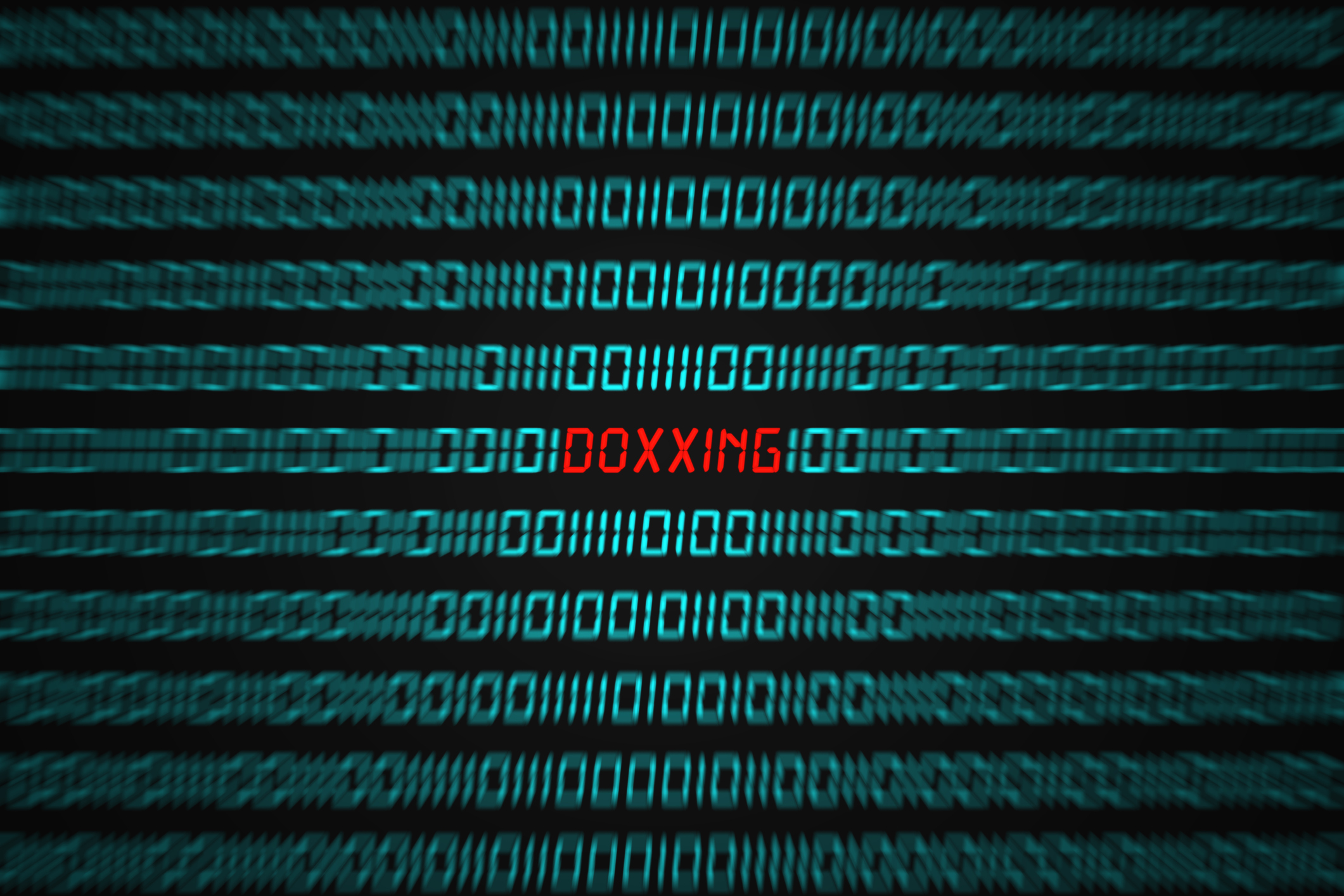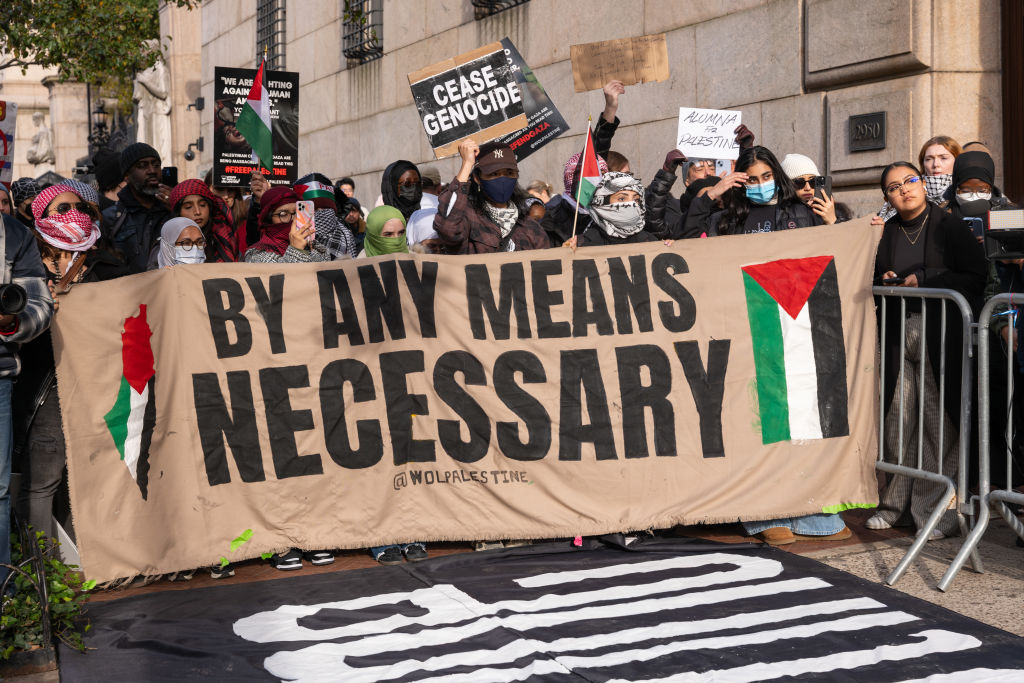Liberal Jews are desperate to maintain the delusion that their major enemies are outside the house.
Just Dox Theory

Social media campaigns should respect proportionality.
Conjuring up the wrath of a progressive digital swarm is analogous to launching a war. As such, doxxing, if done without reference to a set of moral principles, can be a fundamentally unjust act.
A doxxing has embroiled Christian Twitter for the past two weeks. A friend and associate of Stephen Wolfe, author of the recently published The Case for Christian Nationalism, was doxxed the day before Thanksgiving. The friend ran a pseudonymous Twitter account that had tweeted racially offensive and vulgar tweets; as a result, he was fired from his job as the headmaster of a classical Christian school. Online commentators then pivoted toward attacking Wolfe and his successful book.
The doxxing was achieved and cheered on by people ostensibly on the same side as Stephen Wolfe and his friend. They expressed an intention to protect the National Conservative movement from white supremacist “stowaways.” Now, predictably, Salon informs us that Christian Nationalism has a white supremacy crisis. Many conservative Christians felt angry, betrayed, and disgusted by the doxxing, because they had an intuitive sense of what I will make explicit here.
The severe consequences of a dox demand that a rigorous set of moral principles be employed before the dox is initiated. The rubric used for evaluating a just war is a natural place to start. A doxxing should have a just cause—i.e., there should be sufficient evidence to substantiate the public initiation of the dox. Harsh and predictable consequences make doxxing akin to a criminal sentence, and therefore an evidentiary standard comparable to “beyond a reasonable doubt” seems appropriate. The person initiating the dox needs to have legitimate authority to do so, and this must involve something more than individual judgment or taste. Otherwise, the tremendous powers and consequences that follow from a dox will be wielded as a vigilante power. Finally, a dox should not be done publicly if less destructive means are available, as in raising concerning information privately with churches, employers, or other parties to whom the target is accountable.
As in a just war, the consequences of a dox must be proportional to the crime. It’s insufficient to analyze the act of doxxing apart from its foreseeable consequences, because those consequences vary widely. Our social regime is not interested in the doxxing of Christian trinitarian heretics or sexual libertines. In fact, in many such cases the dox victim might gain social capital as a net result of the dox. But our regime is very interested in other kinds of doxxing. A racist thought or expression is akin to a social death sentence, subjecting the dox target to lasting social opprobrium. As Joshua Mitchell notes in American Awakening, “Calling someone a ‘racist,’ ‘misogynist,’ ‘homophobe,’ ‘transphobe,’ ‘Islamophobe,’ ‘fascist,’ ‘Nazi,’ ‘hater,’ ‘denier,’ or any such name is cathartic. These words carry with them the power to banish or to exile.”
Our society is disproportionately harsh on people who express or tweet such forbidden thoughts. Examples from recent memory abound. Just last week a committed college athlete lost his scholarship after a video surfaced showing him singing the words to a popular rap song. The case at hand is instructive as well. After last week’s doxxing, a Christian Twitter mob tried to cancel a crowdfunding campaign meant to defray the dox target’s job loss, signaling their position that his family should not be able to eat. Then Rod Dreher, blogging about Wolfe’s friend, analogized the situation to the Roman Catholic sex abuse scandal. The mob claimed that Wolfe had a duty to publicly denounce and condemn his friend. Indeed, the reaction to the use of a racial slur carries approximately the same social stigma as an act of pedophilia. Is this just?
Moreover, the catastrophic consequences of a dox reach well beyond the individual target. The target’s family, employer and other associates, and friends are permanently harmed. Broader memetic dynamics are unleashed that cannot be easily cabined or controlled. A hostile, biased regime is invited to adjudicate (and mete out sentencing), and the resulting furor creates collateral damage for allies by providing ammunition for leftists to use against all right-wingers. Moreover, as one pseud explains, the resulting guilt is easily weaponized by the Left to extract concessions and compromises from institutions, particularly Christian ones:
Extracting admissions of guilt from your political opponents enables you to demand that they act in a chastened and deferential subjection to you as moral arbiter. Almost everyone is playing this game. Many evangelical Christians are excessively nice people, whose form of faith is itself profoundly oriented around their scrupulosity and overactive consciences. They are also very naïve, and don’t understand that they are perfect marks for this game. They can easily be gaslit. Tell them that they are complicit in the worst atrocities and it is highly likely that they will accept your claims. . . . Their instinctive response, as nice, conformist, conflict averse, and obliging people, when faced with accusations by a person of color is deference, affirmation, and contrition. Critical assessment of the very often largely unfounded accusations being made is suspended.
With all these factors in mind, it seems clear that many good conservative Christians had correct intuitions when they felt gross about what had transpired and felt vaguely suspicious and disdainful of the man who initiated the doxxing. These intuitions are rooted in very real principles of justice. It is entirely reasonable, therefore, to view the dox as an act of betrayal and its author at best misguided in his own sense of probity and more likely invidious in his intentions.
The American Mind presents a range of perspectives. Views are writers’ own and do not necessarily represent those of The Claremont Institute.
The American Mind is a publication of the Claremont Institute, a non-profit 501(c)(3) organization, dedicated to restoring the principles of the American Founding to their rightful, preeminent authority in our national life. Interested in supporting our work? Gifts to the Claremont Institute are tax-deductible.
Old-time liberals would not recognize the doctrine that speaks in their name.
The post-Christian West is descending into relativism and, ultimately, nihilism.
More citizens are rejecting the woke gods in favor of the God of old America.
Four possible choices to defeat identity politics.
This ideology is incompatible with the flourishing of the West.






